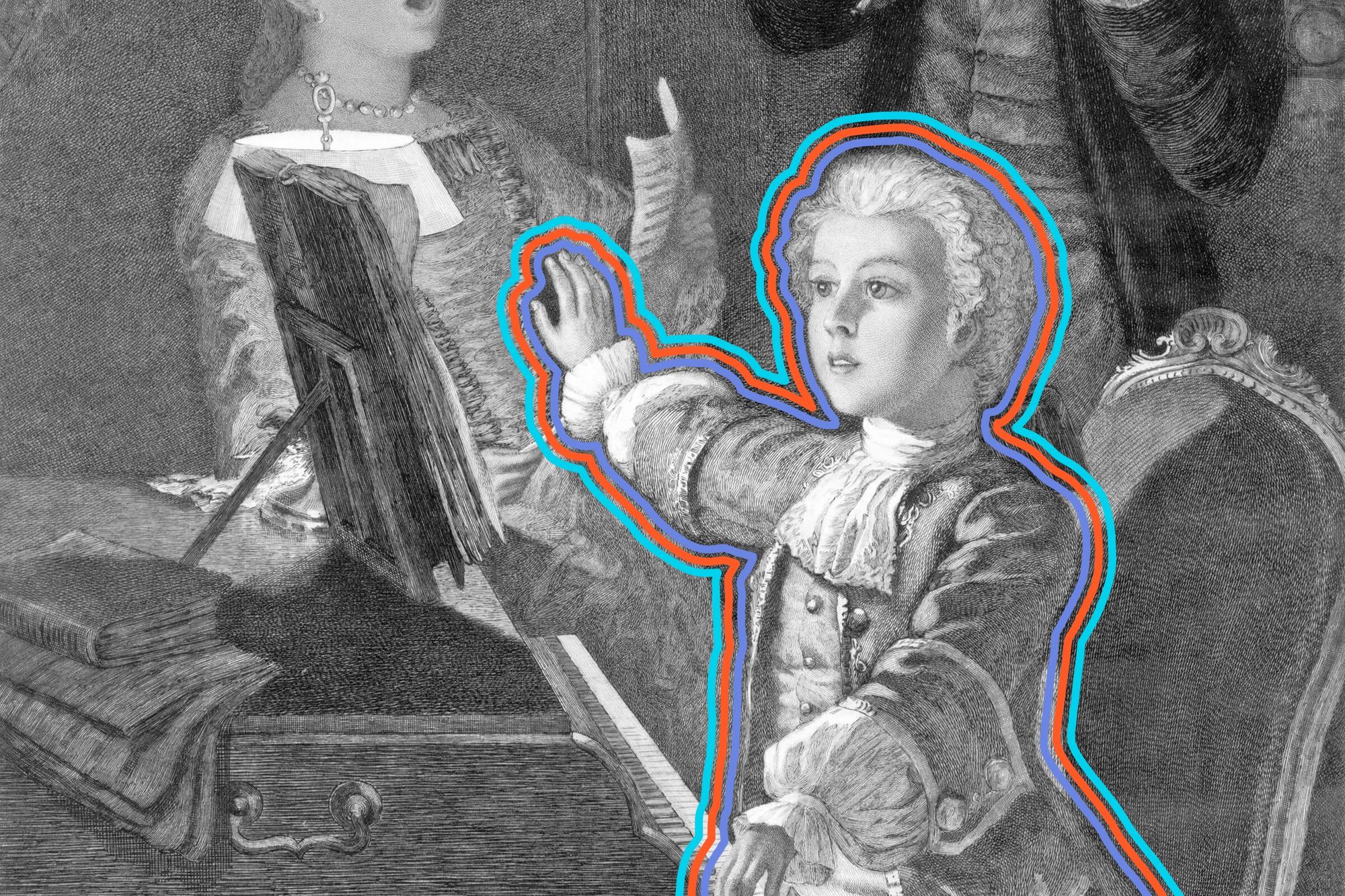

We’ve all seen our share of talented children — the ambidextrous baseball pitchers, the ones who knock out “Für Elise” on the piano with surprising ease, or impress with a recitation of obscure facts from their favorite subjects.
Chances are, we’re witnessing something promising but hardly unusual; adept kids emerge in every generation. However, once in a blue moon, a youngster unleashes such a mind-blowing show of talent that global recognition becomes a distinct possibility. Here are eight such prodigies who quickly dispensed with the training wheels before zooming to the top of their respective fields.
Wolfgang Amadeus Mozart

Intrigued by the harpsichord at age 3, Austrian Wolfgang Amadeus Mozart accelerated through lessons and delivered his first musical composition in 1761 at age 5. That was enough for his father, who sent young Mozart and his older sister — also a gifted musician — on a tour of European cities over the next decade. Mozart thrived despite the grueling traveling conditions, dashing off his first symphony at age eight and his first operas not long after. At age 14, he transcribed Gregorio Allegri's “Miserere” from memory after hearing it performed at the Sistine Chapel, and returned a few weeks later to make only minor corrections to his notes. Mozart, of course, went on to become one of the greatest composers of the classical period, and the early realization of his abilities allowed him the time to create more than 600 works despite an early death at age 35.
Shirley Temple

Few child stars in history have as much notoriety as Shirley Temple. When she was 4 years old, Temple was already lighting up the screen in a series of film shorts called Baby Burlesks (1932). By age seven, she had already appeared in more than 10 feature films and earned a special juvenile Academy Award, and that was before she became Hollywood's No. 1 box office draw for four years running. Temple eventually aged out of her bread-and-butter roles as America's dimple-cheeked sweetheart, and her film career was over by the time she legally became an adult. Fortunately, she avoided the tragedies that plagued many of the child stars who followed in her footsteps by launching a successful second act as a prominent diplomat. Temple, who eventually went by her married name, Shirley Temple Black, was a delegate to the U.N. General Assembly from 1969 to 1970, served as U.S. ambassador to Ghana from 1974 to 1976, was the chief of protocol for President Gerald Ford, and served as ambassador to Czechoslovakia from 1989 to 1992, among other diplomatic roles.
Bobby Fischer

Born in Chicago, Illinois in 1943, Bobby Fischer began playing chess at age 6 after his big sister purchased a $1 set. His talent had blossomed by age 13 when Fischer defeated former U.S. champion Donald Byrne in the "game of the century." He went on to become the youngest national champion at age 14, the game's youngest grandmaster at age 15, and the first American to claim the world championship. Unfortunately after these early successes, an increasingly erratic Fischer became better known for his bigoted rants and troubles with the law, though his place in history is secure thanks to the early show of brilliance that popularized the insular game of kings.
Sor Juana Inés de la Cruz

There weren't many pathways to success for girls born to unwed parents in 17th-century Mexico, but Sor Juana Inés de la Cruz managed to transcend her origins with a dazzling mind and a deft pen. Largely self-taught, she wrote her first dramatic poem at age eight, studied the Greek classics, and was instructing children in Latin by age 13. A few years later, she joined the court of the Viceroy Marquis de Mancera, where she famously wowed a panel of professors with her expertise in numerous subjects. Sor Juana then entered a convent, where she enjoyed the freedom to pen numerous plays, poems, and carols, as well as the proto-feminist manifesto Respuesta a sor Filotea de la Cruz. A clash with authority figures forced her to abandon her creative pursuits shortly before her death in 1695, but she endures as one of the most important literary figures of the New Spanish Baroque.
John Stuart Mill

English philosopher John Stuart Mill's legacy as one of the great writers and thinkers of the 19th century was forged by a childhood devoted to academia. Undertaking a rigorous curriculum, Mill was studying ancient Greek by age three, wrote a history of ancient Rome by age six, and mastered Latin by age 8. The training left him positioned to aid his philosopher father's intellectual pursuits, but it also produced an inner turmoil that manifested in a nervous breakdown and a period of depression in his early 20s. It wasn't until he started reading poetry that Mill began understanding the feelings that had been repressed since childhood, paving the way for his groundbreaking works on utilitarianism, intellectual freedom, capitalism, and gender equality.
Jascha Heifetz

In 1903, at just 2 years old, Jascha Heifetz began learning the violin and rapidly developed fluency with the instrument that would carry him from his native Russia to all corners of the world. He made his formal public debut at age eight, performed before a reported 8,000 people at age 10, and played with the Berlin Philharmonic as an 11-year-old. A seasoned pro by his teenage years, Heifetz made his long-awaited Carnegie Hall debut at 16 and launched a prolific recording career shortly afterward. Heifetz was also a gifted pianist, and he enjoyed success as a Tin Pan Alley composer under the pseudonym of Jim Hoyl, though he remained most beloved for the violin wizardry that was apparent from the very beginning.
John von Neumann

While not nearly as well-remembered as fellow European emigree and scholar Albert Einstein, John von Neumann was also a certifiable genius who made an enormous imprint on the world around him. Born in 1903 in Budapest, Hungry, his turbo-charged intellect was apparent by the early stages of grade school. Von Neumann could converse in ancient Greek and multiply two eight-digit numbers in his head by age 6 and within two years he was already learning calculus. His dad tried to dissuade his son from a career in mathematics over fears that it was an unsustainable career, but von Neumann not only proved he could make a comfortable living in the field, he also showed his training could be applied to the development of game theory, personal computers, weather forecasting, and other real-world applications.
Willie Mosconi

Billiards legend Willie Mosconi got his start playing the game in his father's Philadelphia pool hall, even as his father tried to steer him toward a stage career. After the boy kept sneaking in to practice with a potato and broom handle, a resigned papa figured he could make the most of his son's determination. In 1919, at age 6, Mosconi more than held his own in a match against world champion Ralph Greenleaf, and at age 11, he became the juvenile champ. From there, there was no slowing the man The New York Times called the Babe Ruth of his sport, who once sunk a record 526 shots in a row and won the world billiards title 13 times over 15 years.
